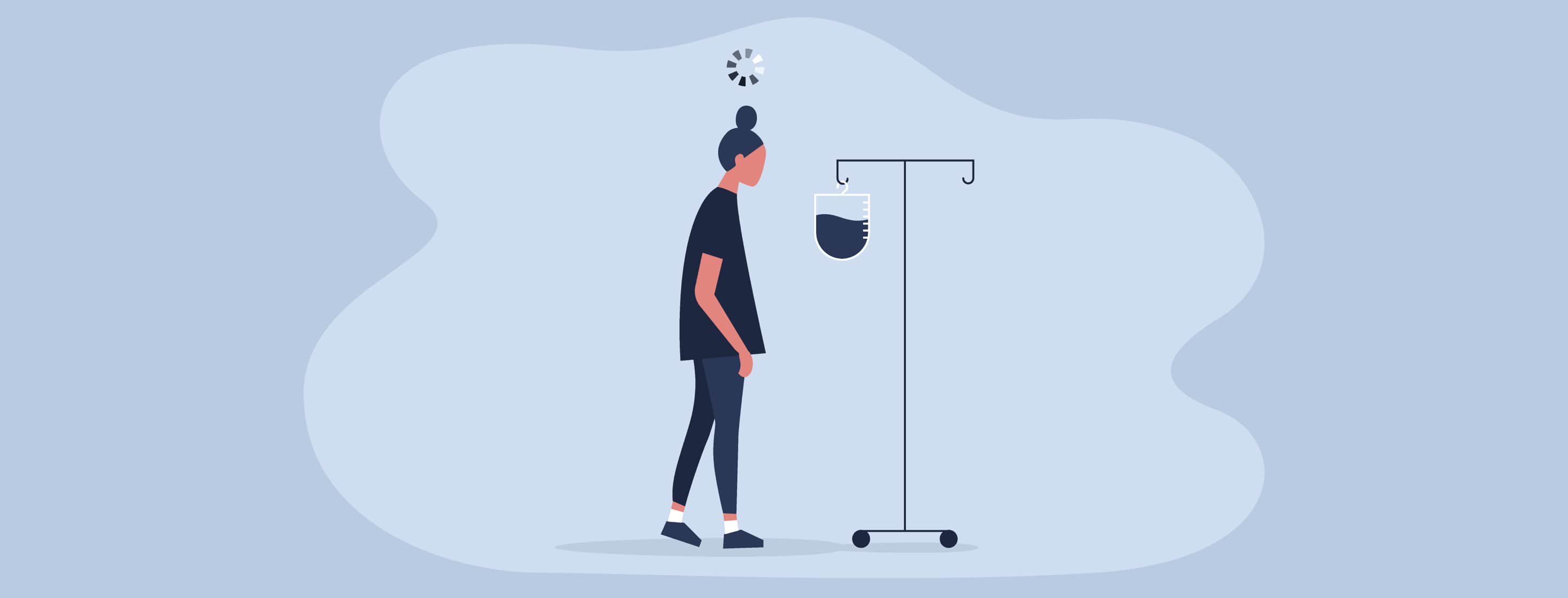Here's What Chemo Feels Like
When I first heard that I'd need chemotherapy to treat my bladder cancer, terrifying visions swam into my head. Knowing virtually nothing about cancer treatment, I pictured chemotherapy like it's portrayed in the movies and on TV. I saw my face, sunken, with dark circles around my eyes. I saw myself vomiting over trash bins and wearing a bright, silk scarf to cover my baldness.
Chemotherapy doesn't look the same for everyone
But what I didn't know was that cancer treatment can vary as much as the cancer itself. Chemotherapy doesn't look like – or feel the same way – for every person, and my chemotherapy experience looked nothing like I pictured it.
Chemotherapy is simply the use of medicines that kill cancer cells and shrink tumors.1 Depending on your age, the type of cancer, the stage of your tumor, and other medical conditions, chemotherapy can be administered in different ways and for various periods of time. Chemotherapy can be given in pill form, taken intravenously, or injected. It can last weeks or months or be given as a one-time treatment.
A short relationship with chemotherapy
Patients who have low-grade, noninvasive bladder cancer, like I did, tend to have a short relationship with chemotherapy. In my case, after the tumors were removed from my bladder, I was given one round of intravesical chemotherapy right after surgery. In other words, the medicine was applied directly through my bladder via a catheter and then drained. Patients with high-grade, noninvasive bladder cancer usually get several rounds of this treatment over several weeks. Patients with more invasive bladder cancers get chemotherapy in pill form or through a vein or muscle, and in conjunction with radiation therapy.1
Nervous about side effects of intravesical chemotherapy
I was relieved that I didn't have to do a more invasive chemo regimen, for sure. But I was still nervous about the side effects of any kind of chemotherapy. Side effects of intravesical chemotherapy include flu-like symptoms, fatigue, and chills.2 Thankfully, I only noticed a little fatigue, and it was probably just because my body was recovering from surgery.
The range of experiences
Talking to other cancer survivors, I'm surprised at the range of responses from people who have had chemo treatments. In my support groups, some patients have such bad fatigue they can hardly function. Others describe intense nausea and even their hair hurting. One person shared with me he's suffered nerve damage since his chemotherapy treatments, giving his hands and feet a painful tingling sensation. It's not pleasant, he tells me, but it's way better than the alternative. Had it not been for chemotherapy, he says, he would have died years ago.
There's always a chance of recurrence
Chemo still scares me. As bladder cancer has a high recurrence rate, there's always a chance my tumors will come back and I'll need multiple rounds of chemo to treat it. And because chemo looks and feels so different for everyone, there's really no telling how it will affect me, if I do have to get it. I think about it often – will I need to shave my head, one day? Will I have black circles under my eyes, constant nausea, extreme fatigue? Or was one round of chemo enough?
Thankful to be cancer-free
But I also remember what that survivor told me: Chemo, even the worst experience, is better than the alternative. He and I are currently cancer-free, and we have chemo to thank.

Join the conversation